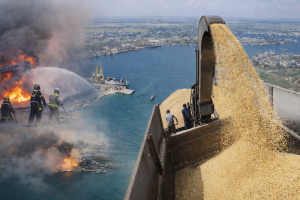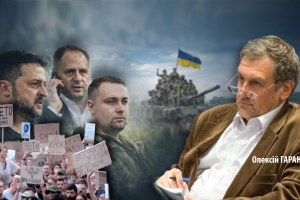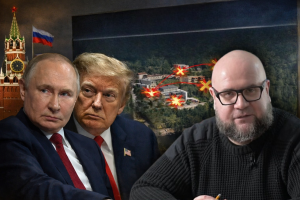Ukraine’s Victory. Brief #4
International Developments
European Union and NATO has signed its third Declaration on EU-NATO cooperation marking the start of a new era of security/defense cooperation between the organizations, as both are actively engaged in providing military and economic assistance to Ukraine while at the same time adjusting their internal procedures to address the threat Russian war poses to European and Euroatlantic security and developing new cooperation mechanisms to boost collective efficiency.
After the last week showed strategic shift in key Western nations’ approach to military assistance to Ukraine, this week demonstrated Great Britain taking the lead by announcing its decision to send 14 Challenger 2 main battle tanks and 30 AS90 self-propelled howitzers to Ukraine.
War/Security Situation
Russian president Putin appointed general Gerasimov to be the next new the Commander of the Joint Forces group in charge of the brutal invasion against Ukraine moving his predecessor general Surovikin down the chain of command to become one of Gerasimov’s deputy commanders. This move indicates further Russian preparations for the large-scale offensive expected to start late winter - the first half of spring.
Situation around Soledar indicates Russian “Wagner” forces are desperate to gain at least virtual control over the city, as Prigozhyn starts to loose his posture against his opponents in the Russian MOD/General Staff. Replacing general Surivikin (a protégé of Prigozhin/Kadyrov alliance) with general Gerasimov clearly shows the head of “Wagner” PMC is loosing influence with Putin.
Russian forces continue to utilize terror tactics by sending massive cruise/ballistic missiles’ barrages against civilian targets in Ukraine. Though short on precision cruise missiles, Russia seems to rely more and more on the X-type rockets fired from the Tu-22 bombers, as well as on the S-300/S-400 systems modified to hit ground targets.
Recommendations
1. As EU and NATO deepen cooperation ties with the third Declaration on EU-NATO cooperation marking the start of a new era of security/defense cooperation between the organizations, Ukraine and its Western Allie’s should use the momentum to make further practical steps to shape the future international security system based on European and Euroatlantic bonds solidified by the joint efforts in defeating the Russian aggressor.
2. London‘s move to send Ukraine 14 Challenger 2 MBTs and 30 AS90 self-propelled howitzers, along the another 5 Western nations’ announcing readiness to send modern MBTs to Ukraine is a major signal to Germany’s Chancellor Scholz to shift its ban on sending German armor to Ukraine in the wake of the next round of Ramstein set to begin January, 20 - the momentum Ukraine and the West should use to speed up military aid, including talks of sending the F-16 fighter jets.
3. General Gerasimov, the newly appointed Commander of the Russian Joint Forces group in charge of the brutal invasion against Ukraine is the architect of Russian hybrid strategy, hence his new position is a marker Ukraine and the West should consider faster preparations for major counteroffensive, as Russian forces are expected to be amassing and utilizing hybrid tactics as soon as they are ready to strike Eastward or/and Northward.
4. Heavy fight in and around Soledar reflects in part the inside power-struggle between the influence groups surrounding Putin, with the Russian MOD/GS group starting to gain the upper hand, driving the Prigozhyn/Kadyrov alliance into more unfavorable situation - and outlining the divisive lines for Ukraine and the West to exploit to further split Putin’s inner circle and inspire yet more contradictions within it.
5. The January, 14, Russian terrorist attack is a move marking a “pay-back” for Russian heavy losses at Bakhmut and Soledar, as well as a signal the newly appointed Commander of the Joint Forces group general Gerasimov is not poised to change the terror tactics of his predecessor, deeming them to be an integral part of Russian hybrid toolkit to be used in the anticipated Russian major offensive.
__________________________
This policy brief was prepared as part of a project “Russia-Ukraine Conflict: from Full-Scale War to Conflict Resolution and Post-War Reconstruction” implemented in cooperation with the Razumkov Centre with the support of the MATRA program of the Embassy of the Netherlands. The opinions expressed are those of the author(s) only and should not be considered as representative of the Embassy’s official position.








